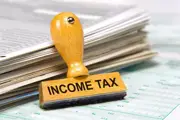How to calculate personal income tax in Singapore
In today's modern and globalized economy, mastering tax regulations is crucial, especially for those living and working in Singapore. From personal income tax for employees to corporate tax for companies, understanding how to calculate tax in Singapore not only ensures legal compliance but also optimizes your financial benefits. This blog will guide you step-by-step through the process of calculating both personal income tax and corporate tax in Singapore, providing you with essential knowledge and useful tips to manage your finances effectively and accurately.
What is Tax?
Before delving into how to calculate tax in Singapore, it's crucial to understand the income tax system in this country. Income tax is a type of tax that governments impose on income generated by businesses and individuals within their jurisdiction. It is a primary source of revenue for governments, used to fund public services, pay government obligations, and provide goods for citizens. In Singapore, as in many other countries, understanding the specifics of how income tax works is essential for legal compliance and financial planning.
Income is taxable in Singapore when it accrues in or is derived from Singapore, regardless of the individual's residency status. Additionally, income derived from sources outside Singapore is only taxable if it is received in Singapore by a resident individual through a partnership in Singapore.

Income tax is a levy on individuals or businesses' earnings
Personal Tax Rates
The tax residency status of an individual in Singapore significantly impacts the tax rates and available reliefs. An individual is deemed a tax resident if they:
-
Are a Singapore Citizen or Singapore Permanent Resident residing in Singapore, except for temporary absences.
-
Are a foreigner who has stayed or worked in Singapore for at least 183 days in the preceding year.
-
Have been continuously in Singapore for three consecutive years.
-
Have worked in Singapore for a continuous period spanning two years, with a total stay of at least 183 days.
>>>See more: Payroll Singapore: Guide to Payroll in Singapore
Tax Implications for Residents vs. Non-Residents
-
Residents: Taxed on their income earned in Singapore at progressive rates and eligible for various personal reliefs and deductions.
-
Non-Residents: Taxed at a flat rate of 24% on income earned in Singapore. Employment income is taxed at the higher of a flat rate of 15% or the resident progressive rates without personal reliefs. Non-resident directors and other specified professionals are subject to different tax treatments.
Personal Income Tax Rates and Structure
Singapore follows a progressive tax rate system for resident individuals, meaning the tax rate increases with the level of income. For the Year of Assessment 2024 (income year 2023), the rates are as follows:
|
Taxable Income (SGD) |
Tax Rate (%) |
Gross Tax Payable (SGD) |
|
0 - 20,000 |
0 |
0 |
|
20,000 - 30,000 |
2.0 |
200 |
|
30,000 - 40,000 |
3.5 |
550 |
|
40,000 - 80,000 |
7.0 |
3,350 |
|
80,000 - 120,000 |
11.5 |
7,950 |
|
120,000 - 160,000 |
15.0 |
13,950 |
|
160,000 - 200,000 |
18.0 |
21,150 |
|
200,000 - 240,000 |
19.0 |
28,750 |
|
240,000 - 280,000 |
19.5 |
36,550 |
|
280,000 - 320,000 |
20.0 |
44,550 |
|
320,000 - 500,000 |
22.0 |
84,150 |
|
500,000 - 1,000,000 |
23.0 |
199,150 |
|
Above 1,000,000 |
24.0 |
- |
>>>See more: Singapore income tax increase
Flat Tax Rates for Non-Residents
Non-resident individuals are subject to a flat tax rate of 24%. However, employment income is taxed at the higher of a flat rate of 15% or the progressive resident rates without personal reliefs. Non-resident directors’ fees are taxed at a flat rate of 24%.
Types of Taxable Income
-
Employment Income: Includes salaries, wages, bonuses, and other forms of remuneration from employment.
-
Gains from Stock Options: Gains from stock options or awards provided by the employer are taxable, subject to certain conditions.
-
Rental Income: Income from leasing property is taxable, with allowable deductions for related expenses such as property tax and maintenance costs.
-
Director’s Fees: Fees received for services as a director of a company are considered taxable income.
-
Taxable Benefits: Certain benefits provided by an employer, such as housing allowances and car benefits, are also taxable.
Non-Taxable Income and Exemptions
Certain types of income are not taxable in Singapore. These include:
-
Capital Gains: Profits from the sale of capital assets are not subject to tax.
-
Inheritances and Gifts: Typically exempt from income tax.
-
Specific Exemptions: Various specific exemptions may apply under certain conditions, such as foreign-sourced income received through partnerships.

Certain types of income are exempt from taxation in Singapore
>>> See more: List recruitment companies in Singapore
Corporate Income Tax Rates
Singaporean companies are taxed on income accrued in or derived from Singapore. Additionally, income received in Singapore from foreign sources may be subject to exemptions and tax reliefs. The corporate income tax rate in Singapore is a flat 17%. However, various tax incentives and exemptions can reduce the effective tax rate significantly.
What constitutes Corporate Income?
Corporate income in Singapore includes:
-
Gains or Profits from Trade or Business: This is the primary source of taxable income, including revenue from the sale of goods or services.
-
Income from Investments: This includes interest earned, rental income from properties, and dividends.
-
Royalties and Premiums: Any profits derived from intellectual property and other similar sources.
-
Other Gains of an Income Nature: Any other income that arises from business activities or investments.

Corporate income in Singapore includes gains from business, investments, royalties and other income sources
Adjustments to Net Profit/Loss
To determine the taxable income, several adjustments are made to the company’s net profit or loss. These adjustments ensure that only the relevant and allowable expenses and income are considered for tax purposes.
Deduct non-taxable income
Certain types of income are not subject to tax and should be excluded from the chargeable income. These include:
-
Capital gains from the sale of fixed assets.
-
Exempt shipping income derived by a shipping company.
-
Foreign-sourced income (such as dividends, branch profits, and service income) that meets qualifying conditions under the Singapore Income Tax Act.
Adjust net investment income
Investment income is assessed separately from trade income. This is because expenses exceeding income from one type of investment cannot offset income from another type. The steps to adjust net investment income are:
-
Deduct all investment income from chargeable income.
-
Deduct related qualified expenses from each type of investment income.
-
Combine the balanced net investment income for each type to get the adjusted net investment income.
Deduct qualified business expenses
Only expenses that are wholly and exclusively incurred in the production of trade income are deductible. Examples of deductible expenses include:
-
Wages and salaries.
-
Office rent.
-
Service fees.
-
Research and development (R&D) expenses.
-
Non-deductible expenses include fines, private expenses and motor vehicle expenses for private passenger cars.
Deduct capital allowances
Depreciation on fixed assets is not deductible for tax purposes. Instead, companies can claim capital allowances for the wear and tear of fixed assets. This allowance can be spread over several years.
Deduct unutilised losses
Companies can carry forward or backward qualified business losses to offset against taxable income in future or previous years. The key points are:
-
Losses must arise from the carrying on of a business.
-
Losses must not have been utilized previously.
-
Unutilized losses can be carried forward indefinitely, subject to conditions.
Deduct unutilised donations
Donations made to approved institutions of public character can be deducted from taxable income. These donations must meet specific criteria to qualify for deduction.

Adjustments to Net Profit/Loss are necessary for accurate tax calculations
How to calculate tax in Singapore
Calculating tax in Singapore involves different methodologies for individuals and companies. Let's break down the process for both.
Individual income tax calculation
-
Step 1 - Determine tax residency: Individuals are classified as tax residents if they meet certain criteria, such as residing in Singapore for at least 183 days in a calendar year. Non-residents are taxed differently.
-
Step 2 - Identify taxable income: This includes salaries, bonuses, rental income, director's fees, and other sources of income earned in Singapore.
-
Step 3 - Apply personal reliefs and deductions: Tax residents are eligible for various personal reliefs and deductions, such as reliefs for supporting parents, child reliefs and deductions for contributions to approved pension or provident funds.
-
Step 4 - Calculate chargeable income: Deduct allowable reliefs and deductions from the total taxable income.
-
Step 5 - Apply progressive tax rates: Singapore's personal income tax rates are progressive, with rates ranging from 0% to 22% for residents. Non-residents are taxed at a flat rate of 15% or the resident rates, whichever is higher.
-
Step 6 - Account for tax rebates and credits: Tax rebates may be available for certain individuals, reducing the total tax payable.
-
Step 7 - File income tax return: Individuals must file their income tax returns by the stipulated deadline, typically April 15th of each year.
Corporate income tax calculation
-
Step 1 - Determine taxable income: For companies, taxable income includes profits derived from Singapore and certain foreign-sourced income.
-
Step 2 - Adjust net Profit/Loss: Various adjustments are made to the company's net profit or loss to arrive at the taxable income. These adjustments include deducting non-taxable income, qualified business expenses, capital allowances, unutilized losses, and donations.
-
Step 3 - Calculate chargeable income: After adjusting the net profit/loss, determine the chargeable income subject to tax.
-
Step 4 - Apply corporate tax rate: Singapore's corporate tax rate is currently 17% on chargeable income. However, certain tax incentives and exemptions may apply to reduce the effective tax rate.
-
Step 5 - Consider tax rebates and incentives: Companies may be eligible for tax rebates, incentives, or exemptions provided by the government to promote specific activities or industries.
-
Step 6 - File corporate tax return: Companies must file their corporate income tax returns by the deadline specified by the Inland Revenue Authority of Singapore (IRAS), typically within a few months after the end of the financial year.

How to calculate tax in Singapore for corporate/individual employees
Other Taxes
In addition to income tax, there are other taxes applicable in Singapore:
-
Goods and Services Tax (GST): GST is a value-added tax levied on most goods and services sold in Singapore. The standard rate is currently 8%, set to increase to 9% in January 2024. Businesses with an annual turnover exceeding SGD 1 million must register for GST. Voluntary registration is available for those below the threshold.
-
Property Tax: Levied on owners of properties based on the annual value of the property, with different rates for residential and non-residential properties.
-
Withholding Tax: Applies to certain payments made to non-residents, including interest, royalties and technical service fees.
-
Customs and Excise Duties: These are imposed on imported goods, alcoholic beverages, tobacco products, and petroleum products. The rates and types of duties vary depending on the nature of the goods.
-
Vehicle-related Taxes: These taxes are aimed at controlling vehicle ownership and usage in Singapore. Various taxes and levies apply to vehicles in Singapore, including the Certificate of Entitlement (COE) premium, Additional Registration Fee (ARF) and Road Tax.
Understanding how to calculate tax in Singapore is essential for individuals and businesses alike. By following a structured approach, you can effectively determine your tax obligations and optimize your financial planning. From assessing residency status to identifying taxable income and applying relevant deductions, mastering the process empowers you to navigate Singapore's tax system with confidence and accuracy.
>>>Read more topics:
Aniday's HR Services
Headhunting Service
Find and recruit quality candidates in just 1 week! Supported by 40,000 experienced headhunters in IT, Finance, Marketing… capable of recruiting in any region.
Headhunting Service ➔Employer of Record (EOR) Service
On behalf of your business, we recruit employees and handle payroll without the need to establish a company in markets such as Vietnam, Singapore, Malaysia, India, Indonesia…
Employer of Record (EOR) Service ➔